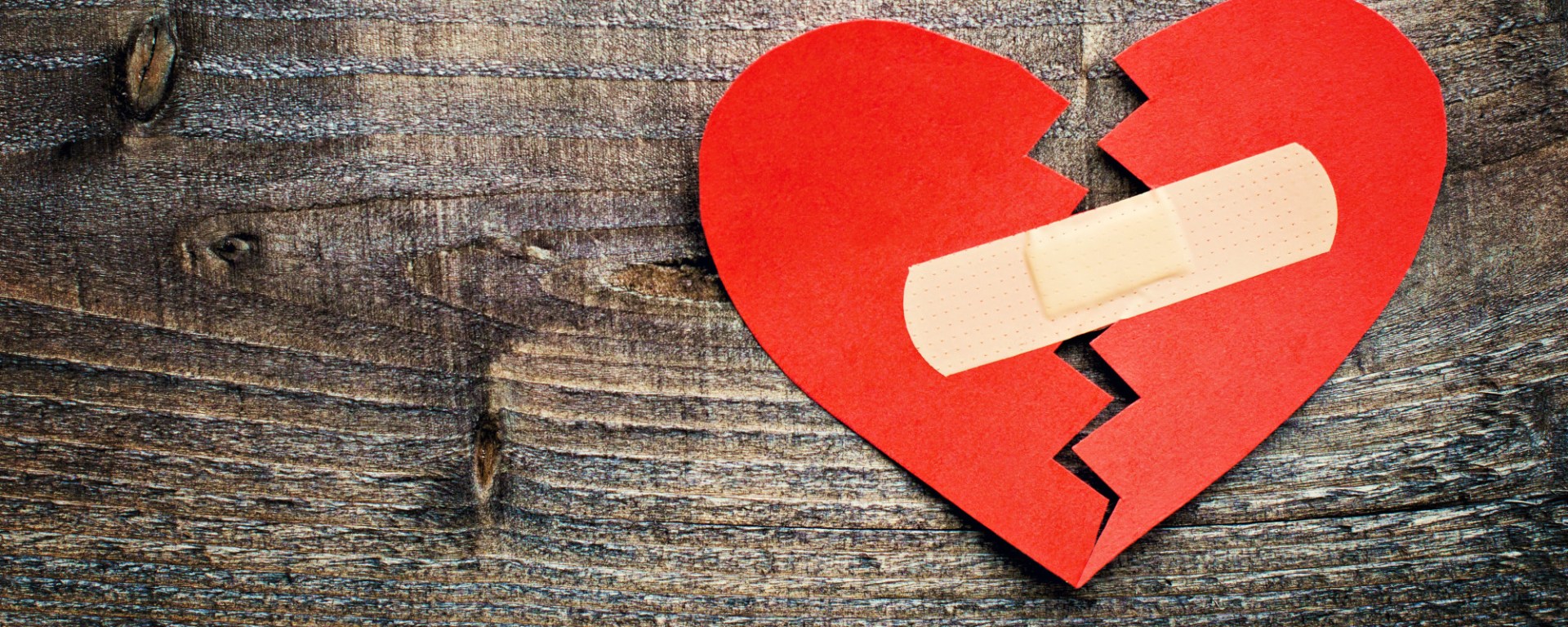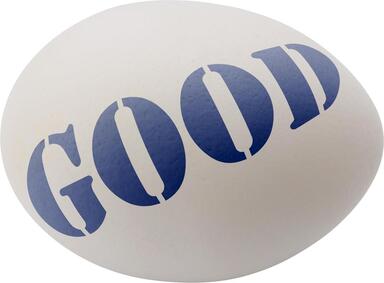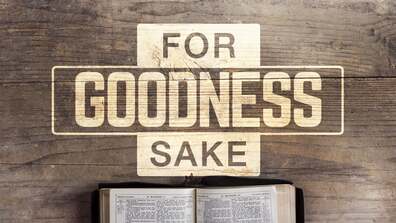all of the selves we Have ever been
 A few weeks ago, a friend of mine suffered sudden heart failure while dining out at a local restaurant. It happened just before the peanut butter pie was served. In what can only be explained as divine intervention, a physician, a navy medic, and a retired cardiac-care nurse were also dining at separate tables in the restaurant. They came to my friend’s aid. In their frantic life-saving efforts, a couple of my friend’s ribs were broken. That was a small price to pay for restoring life to this happy, much-loved, vital woman just a few days short of her 45th birthday. My friend later learned that the restaurant patrons gathered in a circle to pray as the emergency squad drove her away to a nearby hospital. Everyone was shaken. And moved. It is a powerful thing to watch life leave a person, and it is an equally powerful thing to recognize the awesome power in our hands to restore life, to feel the formidable responsibility for the ongoing existence of another human being, to see our hands as life-giving tools--a spark of the divine in each of us. In this time of growing hatred in which too many people are preoccupied with sucking the life out of each other, it is inspiring to learn of a situation in which good hearts responded without hesitation to breathe life into a stranger. It did not matter my friend's political persuasions. All any one needed to know was that she was in trouble and every second mattered. It was a heart-to-heart decision. Humanity and decency prevailed. When there is no one to mock us or create doubt in us, our good hearts are stirred to do the right thing because life matters--to us and to each other. My friend received outstanding cardiac care at the hospital. Chalk one up for science! She is now the recipient of an implanted defibrillator that will provide electric current to power her good heart should it ever again go out of rhythm. I think we could all use a defibrillator to shock us now and then, restore our good hearts when they are out of whack. Plug us in. Bring back this transformative power to the people. May the beat go on.
2 Comments
 As we have opportunity, let us do good to all. - Galatians 6:10 I am a woman on a mission. I am looking for a few good men. Well, not just men. I am looking for good people of any sort. Two stories have taken up residence in my head launching me on this mission. The first story is about Edmund Burke, a respected member of the British Parliament in the 18th century. The words, all that is required for evil to triumph is for good men to do nothing, have frequently been attributed to Burke. While those exact words have not survived fact checking, in Thoughts on the Cause of the Present Discontents (1770), Burke is recorded as saying: When bad men combine, the good must associate; else they will fall, one by one, an unpitied sacrifice in a contemptible struggle. The second story on my mind is the Bible’s tale of the destruction of Sodom. The Lord tells Abraham that the city will be destroyed due to wickedness. Abraham’s nephew, Lot, lives there with his family. Abraham beseeches the Lord to consider saving the city if fifty righteous men can be found. The Lord agrees, but Abraham continues to negotiate. They settle on a final number, and the Lord says, “For the sake of ten, I will not destroy it.” We all know how the story ends: the city burns, everything is destroyed. Lot escapes, but his wife disobeys God’s instructions. She looks back as she flees and turns into a pillar of salt. It has been impossible to escape the daily news in 2021. Dare I look back? The year began with a pandemic threatening our health, weather events threatening our planet, and angry politicians threatening our democracy. People have remained uneasy and some have given voice to a fear that we are approaching the end of times. I am not a prepper. I have no fortified bunker. I do not stockpile nonperishable foods or practice survival skills, but I do want to be ready. If the Lord offers me a deal, I want to have list so that I can name names. In a country of 334 million people, I pray I can find fifty good ones. So far, I’ve got Ed, the homeless gentleman I wrote about on November 16th. A week later, I encountered a nameless and faceless truck driver, but I jotted down his license plate number. God will know the driver by his deeds. I encountered the truck driver as I headed out of Columbus via Interstate 71 North. The urban traffic was heavy and aggressive, moving much faster than the legal limit. My entire body was brittle with tension as I held my breath and I merged from the city ramp onto the highway. Traffic continued to whiz past me even though I was going the maximum posted speed. Feeling anxious and looking forward to getting beyond the city limits, I tucked myself in behind a Wooster Motor Ways truck. Remarkably, the driver maintained the speed limit and slowed for vehicles merging into the heavy traffic. I felt a rush of relief in finding this personal escort, a guardian angel. I followed the semi out of town and through the countryside. We traveled a good sixty miles together before parting ways at the Route 30 exit. While it is a small thing to obey the traffic laws and show consideration to other drivers, it is not without significance. Maybe God will see it as a test of character, a measure of goodness. Then on November 29th, I met Ahmal. After several days of cold, rain, sleet, and snow flurries, the sun came up. By mid-afternoon the thermostat registered a sunny 42 degrees, and I headed outside for a walk. A half a block from home, I saw two obstacles blocking the narrow path ahead. One item appeared to be a bulging gym bag about three feet wide. Bright orange extension cords poked out from the top. Next to the bag was a Shop-Vac. As I came closer, I saw a man standing on the curb studying his smartphone. “Do you know where West Fifth Avenue is,” he asked. “It’s about a half a block straight ahead.” The man looked so relieved, I thought he might cry. “That’s good. That’s good,” he said as he picked up his things. “I’m headed that way. I’ll walk with you.” The man refused to let me carry a thing even as sweat poured from his scalp and dripped onto his shoulders. A few steps in, the man sat the items down in an attempt to re-adjust his load. At that point, I insisted, “hand me the Shop-Vac.” As we made our way to the bus stop, the man told me his story. He had gotten a ride to a local business to detail a food truck. The splattered grease stain that covered his white tea shirt corroborated the story. He told me that he had loaned his rent money to a family member with the promise that the money would be repaid by the time the rent came due. The borrower had not repaid the loan. With just two days remaining, this desperate but determined man was taking every odd job he could find to meet the first-of-the-month deadline. He told me how he had lost his regular job doing yardwork and landscaping when the weather turned cold. Perhaps there was more to the story, but I would not look for fault in a man willing to work this hard to pay his rent on time after sacrificing for a loved one. Slowing down, the man squinted and looked ahead, “I don’t see it. I don’t see no bus stop!” Feeling his exhaustion, I encouraged him to keep going. “The sign is hidden by the trees. We’re almost there.” We took a few more steps. “I see it! I see it now! I got about a two hours bus ride to get home and change so I can get to my next job.” As I set the Shop-Vac down on the sidewalk next to the bus stop sign, the man asked me my name. “Lilli,” I said.” “I’m Ahmal,” and he threw his arms open wide, embracing me with the gratitude of a man whose life had been saved. I felt entirely unworthy and said a prayer of thanksgiving for the sun and the mild temperature that propelled me onto the bike path and into his arms, for the strength to share the mental load and to carry his Shop-Vac to the bus stop. And because I was fortunate, my rent was paid. In this time when everything is askew and the headlines warn of more doom and gloom to come--the end of democracy, the end of decency, the end of the earth, I am buckling down on my mission to find fifty good people. I add Ahmal to the list. The holiday season is a good time to embark on this exercise. In the Christian tradition, Christmas marks the birth of a savior. It is a story of hope, a season of second chances. For Christians, that is not fake news, it is the Good News. But good does not triumph easily. Because it comes into the world quietly and with humility, it risks being overlooked and demeaned. Sometimes there is no room for it at the inn. But a light shines upon goodness for those who seek it. Wise men travel far to find it. In the secular tradition, Christmas is about a jolly old man who sees us when we’re sleeping. He knows when we’re awake. He keeps track of our deeds with his own list of who is naughty and who is nice. He checks his list not once but twice. The nice are rewarded on Christmas morning. I had the good fortune of being born in the post-war era, a time of growth, abundance, and opportunity. I never questioned that I lived anywhere but in the greatest country on earth. Despite our history and our difficulties, I always believed that we would keep growing, and that, in the end, good would triumph in this homeland. The past few years have challenged my beliefs and sense of national identity. COVID has rattled the nerves of everyone on the planet and arrived at a time when democracy was already under grave threat all around the world. News of the day can make it hard to keep believing. But it is Christmas. Whether you celebrate in the Christian tradition or the secular, Christmas is an important reminder of hope, a message that God, or the Something Greater, does not give up on us. Goodness matters and good can be found in surprising places. Mankind is an imperfect lot, but also an unfinished one. There is still time. May goodness find you this Christmas. Prepare to name names.  A nurse met me at my office door: “Can you keep Stella company? Her mother and brother are in with the doctor.” “Of course!” How could I say no to a child? The petite preschooler let go of the nurse’s hand and approached the office chair across from my desk. The chair must have looked like a mountain, but without hesitation or request for assistance, Stella succeeded in the climb. Once in the seat, she turned to face me. Bracing her hands against the arms of the chair and mustering all of her strength, Stella extended herself into a full body stretch. With her feet planted against the seat and her back arched, it seemed she might make herself large enough to fill the giant chair. Despite all of that effort, the heels of her black patent leather shoes did not reach the edge of the seat. Stella centered herself on the roomy cushion, smoothed her skirt, and gracefully crossed her legs at the ankles. Narrow bands of lace adorned the cuffs of her tiny white socks. Stella placed her hands in her lap and looked straight into my eyes. “Why have you come to the clinic today, Stella?” “It’s my brother. He’s resturbed.” Stella spoke earnestly, like a concerned colleague providing a case review. I felt a sting in my chest. This precocious child should have been at home watching Sesame Street and memorizing the words to nursery rhymes. Instead, she was hanging out in a mental health clinic and learning the jargon of psychiatry, the words necessary to explain the odd thinking and behavior of a six year old brother with schizophrenia. The condition ran in her family; Stella’s mother was “resturbed,” too. Thoughtful in her every move, Stella seemed intent on distancing herself from the condition that held her brother and mother captive. Stella and I shared a few moments on a busy morning long ago. Now, I am the one trying to cope with the fear and chronic fatigue that comes from living in a world gone mad. Symptoms of severe mental illness have spread faster than the coronavirus: poor reality testing, delusions, chaos, confusion, suspiciousness, prolonged anger and hostility, lack of insight, poor judgment, increased violence, rigid thinking, poor impulse control, hypersexual speech and behavior, excessive anxiety, peculiar beliefs, inability to form or sustain close relationships, self-importance and attention-seeking, inability to consider the needs of others…Many days it is a struggle to hope, to believe that the world is not irretrievably broken. That is when I think of her. How did Stella do it? Despite her growing awareness of the mental illness that surrounded her, that tiny, precious child was still so innocent, so whole. She was graceful and well-mannered, intelligent and articulate. She waited patiently for the experts to do their work, and she followed their advice. Somehow, she remained capable of trust. Stella gave maximum effort to taking the seat assigned to her. It didn’t matter that the seat was too big; she sat up straight and tall and held on to her dignity. Though it took effort, Stella stretched and planted herself firmly in the middle of the space afforded to her. Character added to her beauty; she was the delicate lace around the rough edges of life. Stella was brave enough to hear the truth and to tell it to others. She was cautious but open. Stella could separate herself from the odd behaviors of her people and love them anyway. She was willing to make the effort to be extra good, to help balance the cargo so that her capsizing family ship did not go under. And somehow in the chaos, she found what she needed to grow and develop. Like Stella, many us are feeling weary and outnumbered. We are trying to be extra good to balance the load, to find what we need to sustain ourselves, but the problems seem so big and so numerous. Leadership is, at best, disappointing, at worst, terrifying. Each day brings something new and disturbing. I have been disturbed so many times that maybe that defines me as “resturbed,” too. I long for peace, the restoration of dignity, the practice of common courtesy. I want the world to work again. I don’t think we can count on politicians to get us out of this crisis. I do think it will take another epidemic, an epidemic of decency--simple, persistent, contagious goodness. Perhaps a child should lead us. Are you out there, Stella?  They were people of few words. That was typical of their generation. It was a “do as I say” era. Parents were not inclined to debate matters with their children. Parents provided general instructions. The specifics were implied. “Have a nice day,” had not yet entered the vernacular. Instead, “Be good” was what our parents had to say whenever we ventured from our front door into the larger world outside. Those simple words were both a farewell and marching orders. As we set off into riskier situations, “Be good!” might be offered in a tone of warning, a reminder that our parents were not fools and knew that we were headed to places where trouble might be found. Most of the time, however, “Be good,” was a gentle reminder of their expectations. Unbeknownst to us, those two small words awakened the little voice within--the nagging Jiminy Cricket voice of conscience. Parents sure knew how to ruin a good time. Be Good. We did not have to open that small word package to understand what was inside. We knew, and we did not want to disappoint. The parcel contained all of the moral lessons important to the development of conscience and character: Tell the truth. Follow the rules. Be on time. Watch out for your siblings. Mind your manners. Be respectful of adults and people in authority. Get along with others. Take care of your things. Respect the property of others. Be cautious. Don’t bend to peer-pressure and go off the bridge with wayward friends. Don’t take anything that does not belong to you. Think of your neighbors. Share. Consider your reputation—your future. Our parents did not study child development or psychological theories, and yet they knew instinctively that it was their job to create within each of us the desire to be good. In our current world climate, I often feel discouraged. It seems like the bad guys are winning. And that winning is everything. I wonder if the desire to be good is melting along with the polar ice caps. A dose of the daily news, and I want to shout at my television, “Be good!” And then I go about my day, and I engage with the real people I know. Good people. Kind people. Generous people. People who desire to be good. I am relieved. In Lived Loved, a devotional by Max Lucado, he shares the story of the famous scholar, Matthew Henry. When Henry was “accosted by thieves and robbed of his purse, he wrote this in his diary: ‘Let me be thankful first, because I was never robbed before; second, because , although they took my purse, they did not take my life; third, although they took my all, it was not much; and, fourthly, because it was I who was robbed, and not I who robbed.’” Matthew Henry was grateful to be one of the good guys. And so am I. Thank you, dear readers and friends. I count you among the good guys. We each need a t-shirt that says, “Be Good.”  “Faith is not the childish belief in magic. That is ignorance or willful blindness. It is instead the realization that the tragic irrationalities of life must be counterbalanced by an equally irrational commitment to the goodness of Being.” --Dr. Jordan B. Peterson in 12 Rules for Life: An Antidote to Chaos This morning, I came across this quote scribbled in a notebook I keep at my bedside for times of prayer and reflection. “Faith over fear” is my daily mantra during the current crisis, and it has been for much of my life. Our showdown with the coronavirus is especially frightening, but so much of life is scary. We all have past experiences with that fact. More typically, we face it down in smaller doses. Never before has the simple, routine act of leaving our homes been a matter of life and death. At this time, I relish Dr. Peterson’s definition of faith—an acceptance of the tragic irrationalities of life, and the power we all hold to counterbalance the tragic with an equally irrational commitment to goodness. His definition transforms faith from a belief or a feeling into an action word, a description of what it means to live by faith regardless of your religious affiliation. I see and hear about this irrational commitment to goodness by people all over the world—people singing from their balconies to engage with and entertain their equally isolated neighbors, donations of food, voluntary re-purposing of manufacturing plants, health care workers who keep coming to work even though they are terrified about what will happen to their own children and families. Irrational commitments to goodness surround us. As the world and our own country mobilize to wipe out the coronavirus, I ask myself, if we make an ongoing irrational commitment to goodness, what else can be wiped out? There are many items on my wish list. Dr. Peterson’s quote captures two of them--ignorance and willful blindness. The pandemic has awakened us to a new understanding that what was once unimaginable is not only possible but real. How foolish can we be about the increasing destruction of the planet? Are we sure there is no such thing as global warming? Can we get back to burning coal? Is it wise to walk away from our global neighbors on these big issues that affect us all? Will we believe them if they tell us something we don’t want to hear? Also on my wipe-it-out wish list is greed. Greed underlies so much of what is problematic. Perhaps it is time to stop equating capitalism with greed. That offends my American-citizen-self. Our forefathers led a revolution energized by the saying, “Taxation without representation is tyranny.” Taxation without representation is greed, the worst form of tyranny. In more recent history, knowingly sending cars off the line with faulty brakes is not capitalism, it is a crime. Bailing out banks so they can take peoples’ homes and give CEOs big bonuses is not capitalism; it is a misuse of public funds. People intuitively understand the difference and want capitalism with a conscience. Ignorance, willful blindness, silent acceptance, and growing resentment are evidence that, too often, we accept the tragic irrationalities of life without question. We fail to speak up or take individual action. I realize that I have been guilty of leaving many of the big issues to others. The reality of the current pandemic is forcing us to hit the re-set button in every area of our individual and collective lives. It is a time for faith over fear, to counterbalance tragedy with irrational goodness, and to acknowledge our moments of ignorance and willful blindness so that we might stand up and speak out while there is time. |
AuthorLilli-ann Buffin Archives
July 2024
Categories
All
|
 RSS Feed
RSS Feed